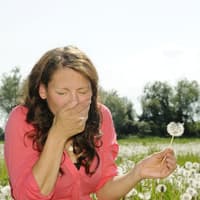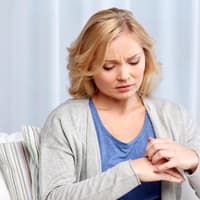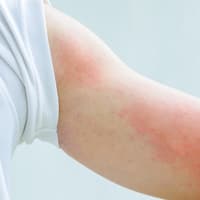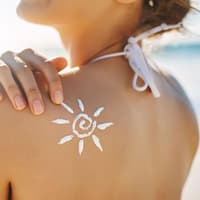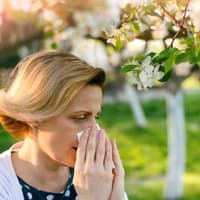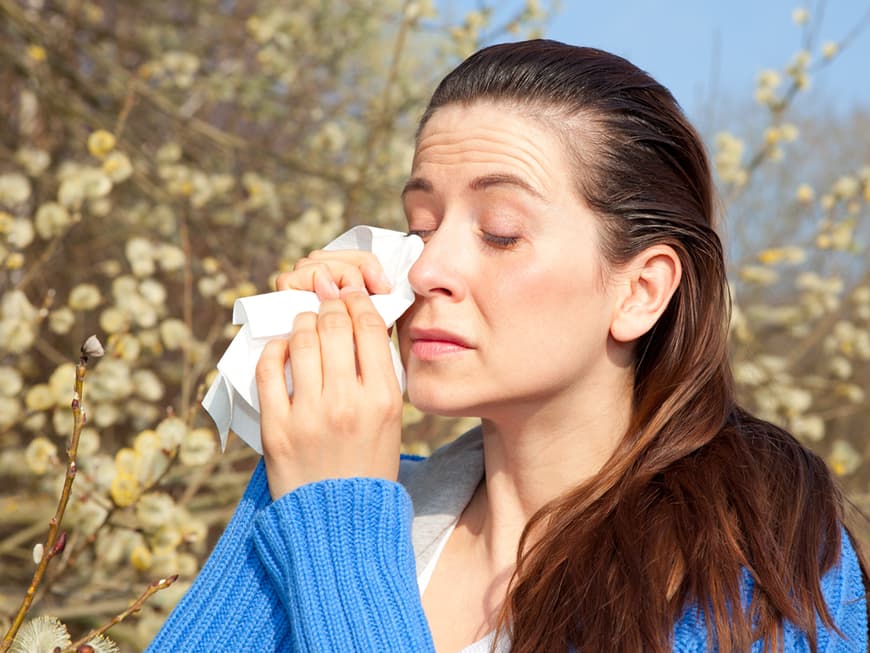
Hay fever: symptoms and causes
Red, watery eyes, runny nose and sneezing are just some of the symptoms of hay fever. The symptoms arise because the immune system classifies harmless pollen proteins as pathogens and fights them.
The alder blossoms as early as February. It is followed by the birch, which grows almost everywhere, including on the Baltic Sea and in the Alpine foothills, which means that we are surrounded by it! The common thing about birch is that it releases a particularly large amount of pollen within a very short time.
What's more, they are becoming increasingly aggressive, which is due to air pollution, such as nitrogen dioxide from factories and car exhausts. This intensifies hay fever symptoms. Experts are also observing another phenomenon: due to climate change, this pollen is also traveling earlier and for longer.
What helps against hay fever?
But can these annoying allergies actually be treated? And what actually helps against hay fever? The best thing for allergy sufferers is to avoid the pollen as much as possible. Change your clothes when you get home and ventilate the room: In the city, the pollen concentration is lowest in the morning, in the countryside late at night. It is therefore advisable to only open the windows at certain times. In the city this is between 6 and 8 am, in the country between 7 and midnight. The load is lower then. The windows can also be opened after a downpour. However, it is advisable to wait 30 minutes after the shower. The reason: when it starts to rain, the concentration of pollen initially increases and only slowly decreases again. If you then take a shower and wash your hair, you have the best chance of a quiet night.
If the sneezing has already started, a nasal douche with sea salt (drugstore) will flush out the pathogens. Dabbing black cumin oil around the nose dampens acute attacks. The anti-allergenic oil is also recommended for long-term treatment - a tablespoon a day with a meal prevents allergy attacks.
The eyes need special protection
Are your eyes itchy and watery? First aid is provided by anti-allergic eye drops (pharmacy), even if you wear contact lenses. However, lens wearers are better off switching to glasses, as their eyes become irritated and dry even more quickly. With or without prescription: sunglasses protect the conjunctiva from allergy-causing intruders outdoors. A large, close-fitting sports model (optician) is ideal. Clean lenses and frames thoroughly with washing-up liquid in the evening. It is also important to wash your hands regularly to avoid rubbing pollen into your face.
Soothe the airways with salt and oil
Do you have a scratchy throat and find it difficult to breathe? Then your immune system is fighting against the supposed pathogens. Inhalations with salt, eucalyptus or fennel oil (health food store) soothe irritated airways: brew water, add a few drops of oil, breathe in slightly cooled steam under a cloth. A brine bath in a spa has similar effects - it inhibits inflammation and reduces the overactive immune system through its relaxing effect.
Further tips against hay fever
The risk of symptoms can also be reduced by changing in the bathroom and washing your hair in the evening before going to bed. The pollen dust likes to get stuck in it. Pollen screens on windows are also a good idea, which are available from DIY stores for around 20 euros. They can also be made to measure and fitted by a specialist, but this is more expensive.
If hay fever sufferers are still bothered by the symptoms despite all precautionary measures, medication with an anti-allergic effect can also help. These are also available on a plant basis, for example with the Indian lungwort (Allergin).
What else you can do
Eat a Mediterranean diet: Studies show that antioxidants in fruits and vegetables as well as omega-3 fatty acids in fish and olive oil have an anti-inflammatory effect. Caution: People who react to birch, alder or hazel often cannot tolerate raw stone and pome fruit either. Stop histamine: Antihistamines (pharmacy) slow down the messenger substance histamine, which causes the allergic reaction.
Harden the immune system: During hyposensitization, the dermatologist repeatedly injects allergy triggers. The body slowly gets used to the supposed intruders and the symptoms disappear.
You may also be interested in this:


